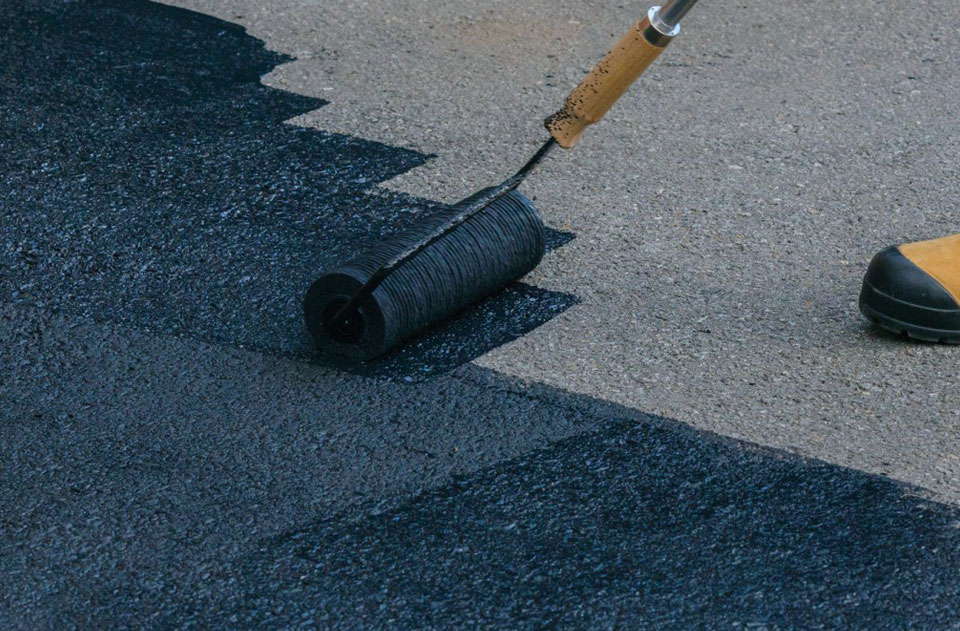How long does sealer extend the life of asphalt?
5 May 2021
Gatineau homeowners naturally want to get as much out of their pavement as possible, and we’re often asked about how to extend the life of asphalt driveways.
- Does sealcoating actually help asphalt last longer?
- How long does sealer extend the life of asphalt?
- How often do I need to reseal my asphalt driveway?
- When is the best time to apply sealcoating?
The paving experts at Pavage Massie take time to answer some of these questions in this article. If you’ve got more questions, don’t be shy to reach out. We’re here to help!
Does sealcoating actually help asphalt last longer?
If applied correctly and at the right time, yes, sealcoating can absolutely extend the life of your asphalt. Especially in Gatineau’s extreme climate, sealer helps asphalt to maintain it’s moisture balance during the hot summers and to ward off damage by de-icing and shoveling in the winter.
Many homeowners choose to reseal their driveways for the aesthetic appeal, as well. All pavement fades in the sun; it’s unavoidable. By applying a fresh coat of sealant, you’ll bring back the fresh, dark lustre of a freshly laid driveway.
How long does sealer extend the life of asphalt?
Of course, each driveway is different in terms of weather exposure, type and amount of traffic, and how it is treated in the winter (commercial de-icer, salt, sand, etc.). Generally speaking, if you have been maintaining your asphalt driveway by filling small cracks before they grow bigger, and sealing the pavement every 2-3 years you could have a driveway that lasts over 20 years.
Sealcoating is instrumental to making your asphalt driveway last longer. By sealing your pavement on a regular basis, you will be able to go longer between repairs and resurfacing. A small investment in having your driveway sealed will help you save much more in the long run.
How often do I need to reseal my asphalt driveway?
We recommend that you have your asphalt driveway resealed every 2-3 years at maximum. Waiting any longer could result in faster deterioration of your pavement. And doing it too often (i.e. annually) could result in chipping and flaking. The best way to determine the frequency that is best for your particular driveway is to have it assessed by your paving company. We can measure the moisture in your asphalt, interpret hard-to-see signs of premature cracking or crumbling, and advise you on whether or not it’s time to apply a coat of sealer.
When is the best time to apply sealcoating?
New asphalt does not need to be sealed in the first season – always wait until after at least the first winter. Sealcoating is always best done when the weather is warm, sunny and dry so that it can dry in the typical 24-48 period. Trying to seal your driveway in cool weather will take longer to dry and mean that you can’t use your driveway. Resealing projects done in the rain are not likely to be successful, either.
By choosing a reputable, local paving company like Pavage Massie, you can trust that your driveway resealing project will only be conducted in appropriate weather conditions to ensure a quality job.
Trust the experts
Resurfacing your asphalt driveway or parking lot is a big investment and you want to get the timing right. Doing it too soon in the life of your driveway is an unnecessary expense and waiting too long can result in an even bigger and more expensive job.
Sealcoating an asphalt driveway can be a daunting task if you’ve never done it before. Turning to the professionals can save you a lot of time and hassle, and you will be able to rest assured that the job is done right.
The Pavage Massie team have been sealcoating driveways and parking lots in the Gatineau region for more than 30 years – you can trust us to advise you on when it’s the right time to reseal your pavement, and then sit back and enjoy your driveway that looks as good as new, again! Call us at 819 663-8767 or click through for a free quote.



